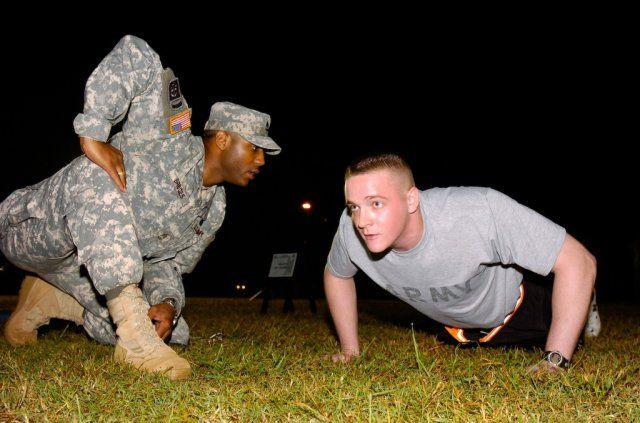Obesity Epidemic Causes Increasing Numbers of Soldiers to Be 'Unfit to Fight'

As some experts have pointed out, our obesity epidemic in the United States is not just a public health issue, though obesity certainly has been linked to increased risk factors for various ailments. It is also a national security problem. According to a recent report, about 75 percent of recruits who want to join the Army are ineligible because of obesity. Of the remaining 25 percent who make it through, 65 percent cannot pass the physical training test on the first day of camp.
Perhaps even more alarmingly, the Army has started discharging an increasing number of troops because the soldiers do not meet fitness standards. Currently, obesity is the leading cause of ineligibility for people who want to join the military.
The Centers for Disease Control reports that 35.7 percent of Americans are obese. That fact has not escaped military recruitment desks. Between 1998 and 2010, the number of troops labeled overweight or obese has more than tripled. In 2010, 5.3 percent of the troops - 83,186 soldiers - had been clinically diagnosed as obese or overweight. This trend is concerning, considering that troops need to be ready to fight in challenging conditions at a moment's notice.
Part of the reason that the Army has been so adamant about enforcing rules about obesity is that they are being asked to slim down the number of troops by 80,000 by the year 2017. Other military branches, like Navy, are also dismissing more soldiers for obesity and overweight - 40 percent more soldiers were discharged compared to recent years. The Army, however, is being asked to cut back more quickly and drastically.
In addition, with the wars ending, there is simply less of a need for soldiers. In 2007, the most violent year of the war in Afghanistan, a mere 112 soldiers were let go for fitness-related reasons.
Now that the fitness standard has gotten new teeth, the fitness test has come under increased scrutiny. The test is two-pronged, with Part One consisting of an endurance test, and Part Two requiring height and weight measurements. Some soldiers say that the test discriminates against troops who have particularly large muscles, or who have put on weight following surgery or as a side effect of taking medication.
Published by Medicaldaily.com



























